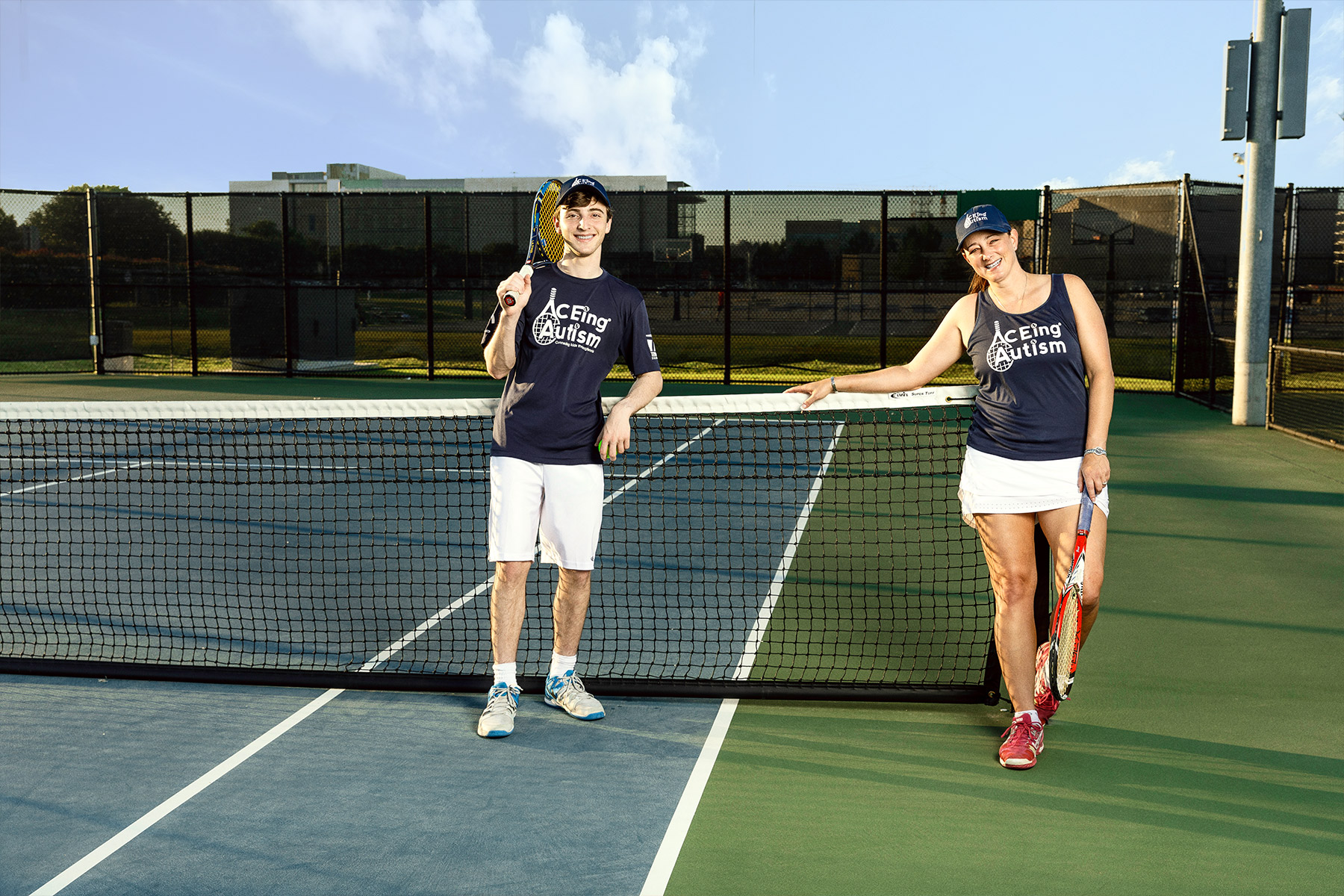Matthew Bransky was watching the Tennis Channel one day a couple of years ago when a commercial caught his eye. It was a PSA for ACEing Autism, a national organization based in Los Angeles that uses tennis to help autistic kids. Matthew was just 16 years old at the time, but he knew he had to get involved.
It seemed like a natural fit. The Branskys are a tennis family. Matthew played for Parish Episcopal School’s varsity team, and his parents Adrienne and Aaron are regulars at local courts—and his younger brother, Josh, has autism. They had all seen what an impact sports could have on autistic kids when Josh had gotten involved with competitive swimming. Adrienne says he feels a sense of calm in the water and it helps him think more clearly.
Matthew felt that tennis could go even further for kids like Josh, since it works on hand-eye coordination and provides an opportunity to socialize a little more. ACEing Autism, founded by Richard Spurling and Dr. Shafali Jeste in 2008, was built on those ideas. But Matthew discovered there wasn’t a Dallas branch, or any in Texas, so he and his mother immediately called the national organization to find out how he could start his own. As a minor, he needed an adult to come on board. Adrienne signed on as his co-director.
Since launching in March 2017, the program has already become the largest in the United States. Matthew and Adrienne also piloted the first adult program within ACEing Autism. Josh never really got involved—he’s completely in love with swimming, his mom says—but this spring, the Dallas chapter had 65 students, ages 5 to 30. “I like to think we’re the most experimental branch,” Matthew says.
Each week’s session consists of a group warm-up and exercises involving racket skills, volleys, ground strokes, and team games. Matthew has created a new framework to keep the clinic fresh for recurring students and started a “Court Lead” role for volunteers so that more kids can join. Both ideas are now being implemented nationally.
ACEing Autism collaborates with UTD, which provides courts and volunteers, a number of whom are students at the School of Behavioral and Brain Sciences. (“Many student volunteers have even come away from the program wanting to specialize in working with kids on the spectrum,” Adrienne says.) Anyone interested in tennis or helping kids with autism is welcome to apply online. And there’s support for the parents, too. Group informational sessions are occasionally held for parents while their kids play. “We try to create a sense of community and belonging,” Adrienne says.
That’s one of the reasons why the Branskys think the Dallas program has been so successful. “We understand what the students and their families are going through,” Adrienne says.
Matthew is heading off to Purdue University this fall, but Adrienne—as well as three tennis pros and about 200 volunteers—will continue to lead the program.
“I’ll be sad to leave,” he says, “but I plan on coming back for summers. I’m also thinking about starting a chapter near Purdue.”





